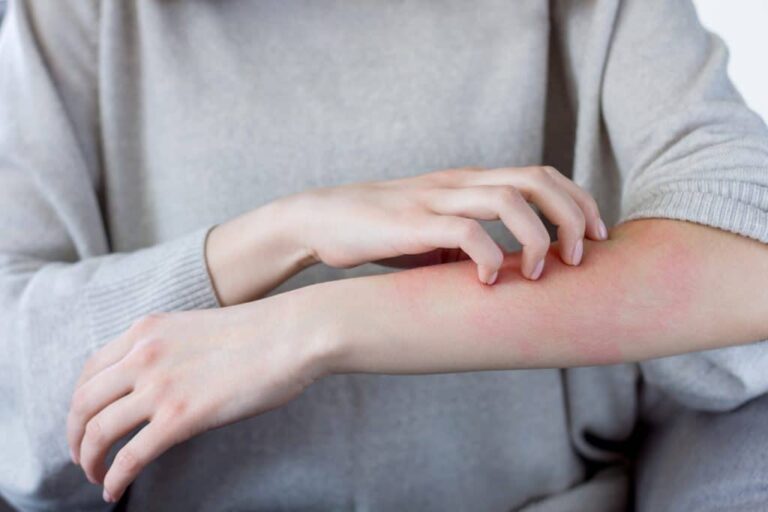What Causes Seasonal Allergies?
Seasonal allergies, also known as hay fever or allergic rhinitis, affect millions of people, causing discomfort and disrupting daily activities. We understand how these...
Posted on April 15, 2022
AllergyYou probably know the classic signs of hay fever, like a runny nose, congestion and watery eyes. In addition, some people experience a rash or skin irritation as one of their symptoms.

Hay fever is also known as allergic rhinitis. It occurs when your immune system mistakes something harmless in the environment as a threat.
Hay fever can be either seasonal or last year-round depending on what triggers your symptoms. Some common causes include:
If your rash is due to hay fever, it’s likely that your skin came in direct contact with an allergen like pollen. Maybe this happened when you were working in your garden or taking a hike through White Clay Creek Preserve.
It’s also possible for hay fever to worsen atopic dermatitis. This is a condition that causes patches of dry, inflamed, and itchy skin and is most common in children.
Just because you spent time outdoors before developing a rash doesn’t mean hay fever is necessarily to blame. Other common causes include:
There are several at-home methods you can try to prevent rashes and other symptoms of hay fever. These include:
If you believe your rash is caused by hay fever, it might be wise to visit an allergist. They can help confirm your allergy diagnosis and identify your specific triggers through allergy testing.
They can also prescribe stronger medications, inhalers, corticosteroids, or recommend immunotherapy to help control your symptoms and keep hay fever from negatively impacting your life.
If you have additional questions or wish to make an appointment with an expert allergist, call today.
Seasonal allergies, also known as hay fever or allergic rhinitis, affect millions of people, causing discomfort and disrupting daily activities. We understand how these...
Could Honey Cure Your Allergies? In Lubbock, Texas, Cal Brints, a local honey producer, thinks local raw honey is the bee’s knees as a treatment...
April 22nd is Earth Day, part of a worldwide movement to focus on and care for our environment. As you celebrate Earth Day by...
Does cold winter weather have you hunkering down at home in hibernation mode? If so, you’re probably tempted to turn the thermostat way up,...